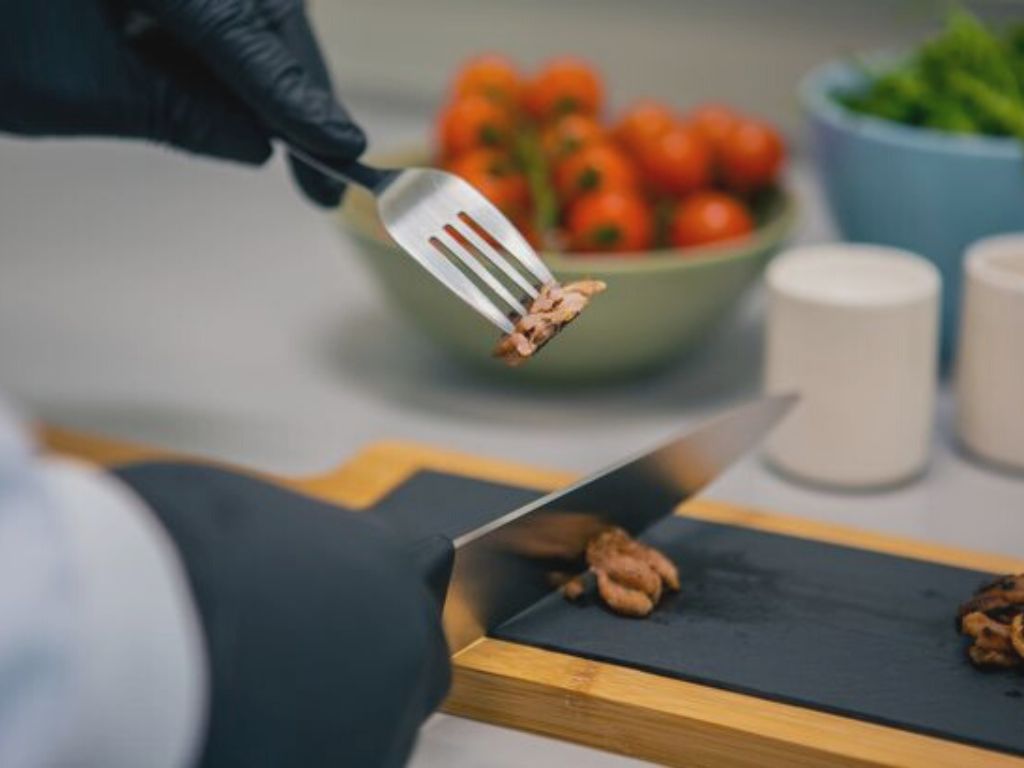£12 Million U.K. Research Hub to Scale Cultivated Meat and Precision Fermentation
3 Mins Read
Last week, the U.K. government made its largest investment to date into sustainable protein — £12 million for the creation of a research center aimed at helping British scientists and companies scale up cultivated meat.
The new Cellular Agriculture Manufacturing Hub (CARMA) will be led by the University of Bath and funded by the Engineering and Physical Sciences Research Council (EPSRC), part of U.K. Research and Innovation (UKRI).
Scaling cultivated meat
CARMA is set to run for seven years and will look into the production of cultivated meat at scale. Recent data found that cultivated meat can cut the climate impact of meat by up to 92 percent, and reduce air pollution by up to 94 percent. The efficient protein category also requires as much as 90 percent less land than conventional animal protein.

The research will be led by Professor Marianne Ellis from the University of Bath. “Our initial focus will be the tissue-engineered cellular agriculture product, cultured meat, and the precision fermentation product, alternative palm oil, but as the Hub expands we expect many other cellular agriculture products to benefit from the research programme,” Ellis said.
“We will take a transdisciplinary approach by engaging with consumers and other stakeholders from the outset to ensure we compliment and boost our country’s food and farming industry for sustainability, social, and economic gains.”
The new research facility is part of the government’s £120 million earmarked for its Food Strategy efforts.
“With 9 billion mouths to feed by 2050 we need to double world food production on the same
land area, using half as much energy and water. We cannot achieve that through traditional
agriculture,” said George Freeman, Minister of State for Science, Research and Innovation.
‘A seismic move’
The Good Food Institute Europe think tank applauded the announcement. Linus Pardoe, U.K. Policy Manager at the Good Food Institute Europe called the announcement a “seismic move” in the development of a sustainable protein industry in the U.K.
Pardoe said the landmark investment is “a strong indication that the U.K. government recognizes the importance of cellular agriculture and the need to invest in the R&D necessary to help British companies scale production, bringing down costs and making this food available to everyone.”

CARMA will also explore the development of foods such as sustainable palm oil through techniques like precision fermentation, which use organisms such as yeast to produce real egg or dairy proteins. This offers consumers the flavor and texture of foods like cheese, meat, and eggs without using any animal inputs.
“It’s also great to see that this project will explore the societal implications of these new ways of making food,” Pardoe said, “ensuring that consumers and food producers understand and benefit from these game-changing innovations.”




